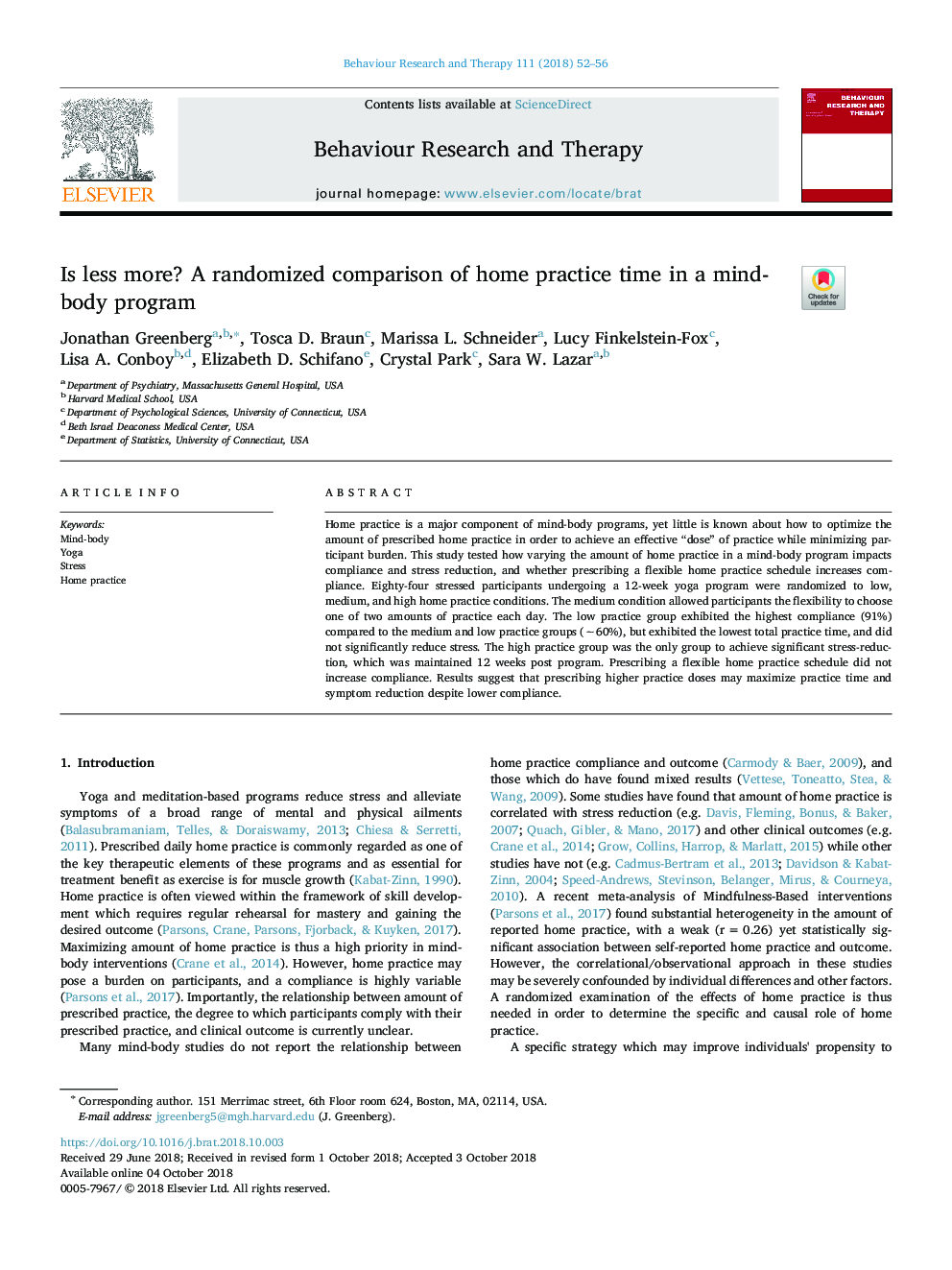| Article ID | Journal | Published Year | Pages | File Type |
|---|---|---|---|---|
| 11023468 | Behaviour Research and Therapy | 2018 | 5 Pages |
Abstract
Home practice is a major component of mind-body programs, yet little is known about how to optimize the amount of prescribed home practice in order to achieve an effective “dose” of practice while minimizing participant burden. This study tested how varying the amount of home practice in a mind-body program impacts compliance and stress reduction, and whether prescribing a flexible home practice schedule increases compliance. Eighty-four stressed participants undergoing a 12-week yoga program were randomized to low, medium, and high home practice conditions. The medium condition allowed participants the flexibility to choose one of two amounts of practice each day. The low practice group exhibited the highest compliance (91%) compared to the medium and low practice groups (â¼60%), but exhibited the lowest total practice time, and did not significantly reduce stress. The high practice group was the only group to achieve significant stress-reduction, which was maintained 12 weeks post program. Prescribing a flexible home practice schedule did not increase compliance. Results suggest that prescribing higher practice doses may maximize practice time and symptom reduction despite lower compliance.
Related Topics
Health Sciences
Medicine and Dentistry
Psychiatry and Mental Health
Authors
Jonathan Greenberg, Tosca D. Braun, Marissa L. Schneider, Lucy Finkelstein-Fox, Lisa A. Conboy, Elizabeth D. Schifano, Crystal Park, Sara W. Lazar,
